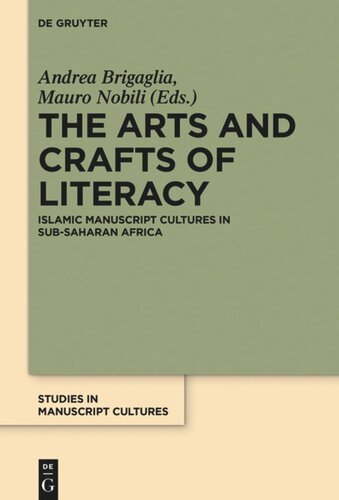

Most ebook files are in PDF format, so you can easily read them using various software such as Foxit Reader or directly on the Google Chrome browser.
Some ebook files are released by publishers in other formats such as .awz, .mobi, .epub, .fb2, etc. You may need to install specific software to read these formats on mobile/PC, such as Calibre.
Please read the tutorial at this link: https://ebookbell.com/faq
We offer FREE conversion to the popular formats you request; however, this may take some time. Therefore, right after payment, please email us, and we will try to provide the service as quickly as possible.
For some exceptional file formats or broken links (if any), please refrain from opening any disputes. Instead, email us first, and we will try to assist within a maximum of 6 hours.
EbookBell Team

0.0
0 reviewsDuring the last two decades, the (re-)discovery of thousands of manuscripts in different regions of sub-Saharan Africa has questioned the long-standing approach of Africa as a continent only characterized by orality and legitimately assigned to the continent the status of a civilization of written literacy.
However, most of the existing studies mainly aim at serving literary and historical purposes, and focus only on the textual dimension of the manuscripts. This book advances on the contrary a holistic approach to the study of these manuscripts and gather contributions on the different dimensions of the manuscript, i.e. the materials, the technologies, the practices and the communities involved in the production, commercialization, circulation, preservation and consumption.
The originality of this book is found in its methodological approach as well as its comparative geographic focus, presenting studies on a continental scale, including regions formerly neglected by existing scholarship, provides a unique opportunity to expand our still scanty knowledge of the different manuscript cultures that the African continent has developed and that often can still be considered as living traditions.